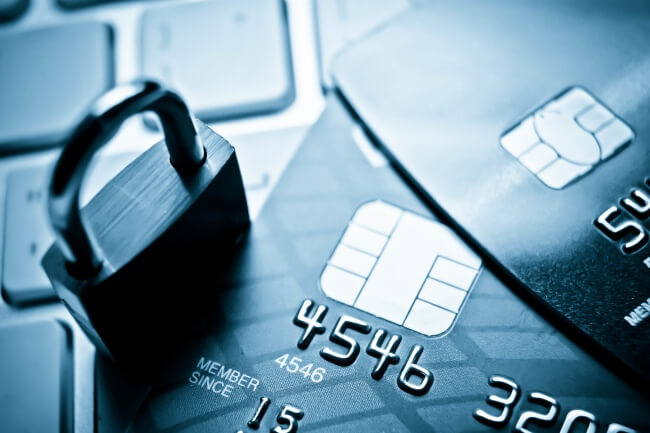
Need a little credit card processing 101?
You’re not alone. It can be complicated. Un-complicate it by perusing our FAQs.

What is a payment gateway?
A Payment Gateway sits between the Merchant and the Processor, who passes transactions to the Network (MasterCard, Visa, American Express, Discover, etc). The role of the Payment Gateway is that of a secure information conduit that complies with credit card processing security rules and regulations. Once the card information is entered, the Payment Gateway transmits the card data to the Network who then passes it on to the card’s issuing bank for authorization.

What is a recurring payment?
Pre-scheduled payments that automatically repeat the billing cycle are known as recurring payments. This can be done on a weekly, monthly, or annual basis.
The automation is what distinguishes recurring payments from a client payment made in person or the processing of an invoice. Your clients don’t have to do anything to get their payments processed each month (or year). They just join up, and you set up the automatic payments.
Payments can be taken in one of two ways:
- Fixed recurring payments
Fixed recurring payment options are best suited for situations where the payment amount is the same every time. Say a gym membership is $25 per week. The amount would be set at this fixed price each week.
- Variable recurring payments
Variable recurring payments, as the name suggests, are variable. This would be most suitable in cases where the amount is subject to usage, so the bill changes each month. Utility companies and telco providers will typically use variable recurring payments.

What are interchange fees?
Interchange Fees are variable charges for processing transactions, first paid by the payment processor to the cardholder’s issuing bank and card company (Mastercard or Visa), and later charged back to the merchant by the payment processor. The variable nature of Interchange Fees depends upon the card type, information contained in the transaction, when it was processed, and how it was processed (swiped or manually keyed in). The Interchange Fee is different for every credit card transaction because of the many factors involved.

What is Interchange Pass-Through (also known as Cost Plus) Pricing?
Interchange pass through pricing is a form of credit card processing pricing that allows the actual cost of processing (interchange fees & assessments) to be passed directly to your business. Payway uses interchange pass-through pricing (also known as cost-plus pricing), passing through the interchange fee rather than bundling it in.
This pricing model is more transparent because it is far more difficult to have hidden costs as with bundling pricing. In interchange pass-through pricing, we charge the actual interchange fee then add a markup (i.e., 10 cents). With interchange pass-through pricing, you’ll know exactly what you’re paying per transaction. It can reduce your credit card processing fees by up to 20% every month.

What is Level 3 Processing?
Level 3 Processing retrieves detailed transactional information along with the sale to send to Visa and Mastercard, which, in turn, provides access to lower Interchange rates for those that participate.
At Payway, Level 3 Processing is automated for all clients —right from the start— to reduce as many interchange fees as possible for the duration of our partnership.

How does account updater work?
Payway’s automatic account updater ensures that the data vault contains the most up-to-date card data, including expired cards, closed accounts, and changed account numbers.
- Participating card issuers send account information to Visa/Mastercard and Discover.
- Payway routinely sends queries for updates from Visa/Mastercard and Discover.
- Visa/Mastercard and Discover return updated information.
- Account Updater applies new account information to the Payway vault.

What is tokenization?
Tokenization is a method of protecting cardholder data during transactions made with Internet protocols and later storage of the same data with the payment service provider. It involves replacing the data with a unique value, not decipherable by hackers. However, the cardholder’s issuing bank is able to recognize the token and approve or reject the transaction based on available funds. After an initial purchase and creation of a patron’s token, the same payment service provider can recall the patron’s token to process recurring payments in a secure manner, again and again.

Is Payway PCI compliant?
Yes, Payway adheres to the latest standards of the Payment Card Industry. Our payment gateway is certified with Visa and Mastercard. Cardholder data is encrypted at the point of entry with the hosted payment page, which eliminates all unencrypted data from the merchant environment. By moving away from premise-based credit card interfaces, merchants can improve data security and remove the local system from PCI certification scope.

What does Card-Not-Present mean?
A Card-Not-Present (CNP) transaction is one that neither requires the cardholder or the credit card to be physically present at that time of the payment transaction.
A transaction that is considered “card present” however, collects payment information at the time of sale with the cardholder physically present. This happens when a card is physically swiped through a point of sale device or credit card chip is processed.

What is a contactless payment?
A contactless payment is a secure method for consumers to purchase products or services using a debit, credit, or smartcard—also known as a chip card—by using RFID technology or near-field communication (NFC).

What is 3D Secure?
3D Secure is a globally accepted authentication solution designed to make eCommerce payment processing more secure in real-time by providing an additional layer of security.
It enables the exchange of date between the merchant, card issuer and when necessary, the cardholder to validate that the transaction is being initiated by the rightful owner of the account.
Unlike traditional fraud prevention tools or chargeback mitigation companies, 3D Secure provides merchants with a liability shift against fraudulent chargebacks. This means there are no disputes – the chargeback does not hit the merchant account.

How do I know my customers’ card data is secure?
Payway stores its data in one of two data centers hosted by Armor, a cloud-based facility that provides 24/7 security and support and exceeds PCI compliance requirements.

What is Point-to-Point Encryption (P2PE)?
P2PE (also referred to as End-to-End Encryption, or E2EE) is a methodology for securing credit card data by encrypting it from the time a card is input through a secure device (by card swipe or manual account entry) until it reaches the payment processor where it is decrypted. When implemented properly, these types of solutions make payment card transactions more secure by preventing the theft of credit card data while unencrypted on a POS device, or in transit.
By using P2PE, card data is unreadable until it reaches the secure decryption environment, which makes it less valuable if the data is stolen in a breach.
By encrypting cardholder data at the Point of Sale or Point of Entry, merchants can significantly reduce the risk of a data breach and the scope of PCI DSS compliance requirements. Can Payway provide a P2PE solution for my company? Yes, Payway offers P2PE as an add-on to Payway to help merchants reduce the scope and cost of PCI-DSS compliance, while further protecting cardholder data from potential hackers. See our Security page for more information.
Can Payway provide a P2PE solution for my company?
Yes, Payway offers P2PE as an add-on to Payway to help merchants reduce the scope and cost of PCI-DSS compliance, while further protecting cardholder data from potential hackers. See our Security page for more information.
Do I need to get a new merchant account if I convert to Payway?
Our “Complete” service does include merchant account services. However, we do understand that sometimes you just need certain pieces of our service, which is why we do not require you to get a new merchant account when you choose our payment gateway.
What is a merchant account?
A merchant account is a type of bank account that allows businesses to accept payments by debit or credit cards. It serves as a liaison between a business’s bank account and a customer’s bank account. When a customer makes a payment with a credit or debit card, the funds are first transferred to a merchant account before they move over to the merchant’s financial account of choosing for withdrawal.
Do I need to use the Payway payment gateway if I only need a merchant account?
The same rings true for the payment gateway. If your need is only for merchants, we are happy to help out.
How is customer support handled for Payway?
Payway specializes in integrating the needs of different systems, credit card processors, and client banks. We are committed to providing our customers with fast and efficient payment management through one central source. Our trained engineers and customer support team respond quickly to all payment processing questions, regardless of where the question or problem originates — at the bank, at the credit network, or in the settlement process. Payway will work with you to reach a solution.
What is the process for converting from my current processor?
Payway has performed hundreds of conversions from various sources, e.g., Braintree, Authorize.net, IC Verify, etc. These conversions have included systems that have already been tokenized, as well as systems with only raw credit card data. The steps to tokenize include:
- Coordinate with the existing payment processor or system to provide an initial test file containing existing accounts and tokens (if applicable).
- Run the Payway task to import the accounts into the Payway payment gateway and generate a result file containing tokens.
- Update the core system with the resulting token file. If the old system was tokenized, the old tokens will be replaced at this time.
- Validate the token conversion by running a test transaction using the new tokens and checking proper routing of tokens to accounts.
What is Customer Payment Recovery?
Our payment solution with customer payment recovery reduces customer churn by saving failed payment transactions. There is no additional cost for this feature.
When you use Payway’s payment solution with FlexCharge’s failed payment recovery solution, you give your customers the ability to complete a purchase when their payment is declined. Instead of a payment failure message, customers are presented with the option to complete the purchase and be charged at a later stage.
- The solution works with any payment method chosen by your customer, such as credit or debit card, PayPal, Apple Pay, etc.
- FlexCharge fulfills the payment at time of purchase and then collects it later from your customer without any fees or penalties.
- FlexCharge assumes all credit and fraud risk.
- You’ll see a reduction in decline rates and payment failures.
With failed payment recovery, a large percentage of your failed payment transactions can be rescued. A larger percentage of payments being processed means increased revenue for you. We expect this solution to deliver up to a 15% revenue increase.
What are Apple Pay Merchant Tokens?
Apple Pay Merchant Tokens are relatively new that businesses can now use to optimize preauthorized payment experiences. They are different from Apple Pay DPANs (Device Payment Account Numbers) in that they are linked to a merchant account, rather than an individual card or device.
Apple Pay merchant tokens are a feature that enables apps and websites that offer Apple Pay to securely complete automatic or recurring payments independent of a device. These tokens provide visibility into crucial payment lifecycle updates, such as account status, bank card art, and card expiration date, in order to help prevent or resolve billing issues. Merchant tokens also enable continuity across multiple devices, which is especially beneficial when someone upgrades to a new iPhone. For example, if someone upgrades to a new iPhone, their payment information will be managed through a merchant token and remain active if they remove a card from their old device.
By using merchant tokens, Apple Pay provides merchants with enhanced security, improved customer experience, and seamless payments.
Request a free cost analysis today!
Find out how much you can save with a simple switch to Payway.
Let's Get Started


